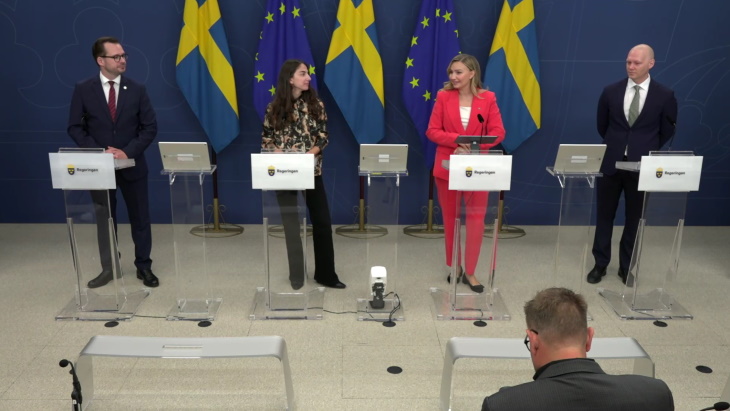
"Sweden's climate transition, competitiveness and welfare are based on secure access to fossil-free energy at competitive prices," the government said in a 9 September statement. "Sweden must reach net-zero emissions by 2045, and a prerequisite for climate change is a powerful expansion of fossil-free electricity production - with all types of power. In the budget bill for 2025, the government therefore proposes investments of over SEK1 billion in 2025 to secure an increased and secure energy supply and to promote the green transition."
The investments proposed include, among other things, new investment support to increase the power system's capabilities, compensation to municipalities for wind power expansion and efforts to improve the conditions for new fossil-free electricity production.
The government said Sweden needs nuclear energy to help it meet future electricity needs and to increase security of supply in the electricity system. "The government's work to enable the expansion of new nuclear power is now entering a more intensive phase," it said.
The government has proposed investing SEK100 million in 2025 to support pilot and demonstration projects in the nuclear power area.
In addition, in order to create the conditions for good coordination between the relevant authorities' respective parts of the permitting process, the government is increasing the Environmental Protection Agency's grant by SEK2.5 million in 2025 so that the authority can provide guidance according to the Environmental Code. For 2026 and 2027, the grant is estimated to increase by SEK2.5 million and SEK1.5 million, respectively.
"Additional work will be required to strengthen the conditions for new nuclear power," the government said. It is therefore allocating SEK30 million in 2025 for this purpose. Furthermore, it is estimated that SEK35 million will be set aside in 2026 and SEK25 million in 2027.
The government said it intends to submit these proposals to the parliament - the Riksdag - in the budget bill for 2025. The proposals are based on an agreement between the government and the Sweden Democrats.
"Now we are urgently working on the financing model for new nuclear power," said Financial Markets Minister Niklas Wykman. "Nuclear power is an important part of securing Swedish growth in the future, not least because it can be planned."
"The government and the Sweden Democrats have already taken a series of decisive measures to improve the conditions for new nuclear power, and now further steps are being taken," added Mattias Bäckström Johansson, party secretary of the Sweden Democrats. "It is absolutely necessary to meet the electricity needs of the future and to increase the security of supply in the electricity system. There is also a renaissance going on in nuclear power with several new exciting technologies, where Sweden will now also be able to participate and lead the development by developing new technology in the field."
Addressing the Riksdag on 10 September, Prime Minister Ulf Kristersson said: "The decommissioning of half of all nuclear reactors has resulted in a shortage of plannable electricity in southern Sweden. This has cost us dearly. To secure the electricity supply and succeed in the climate transition, the government is fundamentally reworking its energy policy. All types of fossil-free energy will be needed. Without energy policy, there is no climate policy."
Kristersson said important steps have been taken to establish a new nuclear programme in Sweden, and these efforts are "now entering an intensive phase". He said the government is continuing work on the recently presented model for risk-sharing. "The government is presenting a bill on research and innovation in the field of energy, where research on nuclear power is a particular priority. We are investing in pilot and demonstration projects in the area of nuclear power."
In October 2022, Sweden's incoming centre-right coalition government adopted a positive stance towards nuclear energy. In November 2023, it unveiled a roadmap which envisages the construction of new nuclear generating capacity equivalent to at least two large-scale reactors by 2035, with up to 10 new large-scale reactors coming online by 2045.